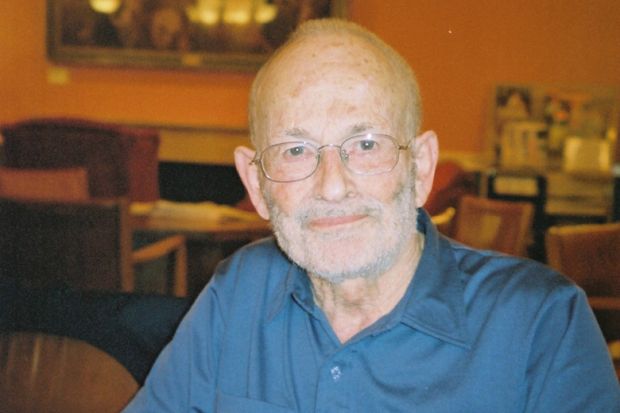A physicist who transformed himself into an expert on higher education has died.
Lewis Elton was born in Tübingen, Germany in 1923 but moved to Czechoslovakia in 1929 when his father – the distinguished classicist Victor Ehrenberg – was appointed to a professorship at the German University in Prague. In autumn 1938, as the political situation became increasingly difficult for Jews, Professor Ehrenberg was supported by the British Society for the Protection of Learning and the Sciences (now the Council for At-Risk Academics) to continue his career in the UK, where the family changed their name to Elton. Both Lewis and his brother Geoffrey (1921-94), later one of the leading Tudor historians of his generation, were given places at Rydal School in Colwyn Bay, Wales.
From there, Professor Elton began a degree in mathematics at Christ’s College, Cambridge, although this was interrupted by the Second World War and he opted for a correspondence degree. After a PhD in theoretical physics at UCL (1950), he started his career as a lecturer at King’s College London (1950-57). He joined the Battersea College of Technology and served as professor of physics (1964-70) during the period in which the institution moved to Guildford and became the University of Surrey.
It was at this point, Professor Elton once told Times Higher Education, that he “asked the vice-chancellor if I could switch my research to improving teaching and learning in universities and he agreed. It kept me young.”
He left Surrey as emeritus professor of higher education, but hardly let retirement slow him down. In 1994, after working for five years in the UK government’s Employment Department, he was appointed professor of higher education at UCL, where he founded what is now the Centre for the Advancement of Learning and Teaching. He was in great demand as a lively and provocative speaker on issues such as assessment, change management, quality and standards.
Even after leaving UCL in 2003, Professor Elton took on a visiting position at the University of Manchester. In 2005, he received the first Times Higher Education Lifetime Achievement Award. His characteristic comment was: “I suppose people were thinking, ‘What on earth can he be doing at his age to deserve an award?’”
Professor Elton died on 29 September and is survived by his wife Mary. His children include the comedian Ben Elton. At Surrey, his legacy includes an annual physics lecture in his honour and the Lewis Elton Gallery, a tribute to his determination to replace grimy reproductions with “real art” – first at Battersea and then on the main Surrey campus.




